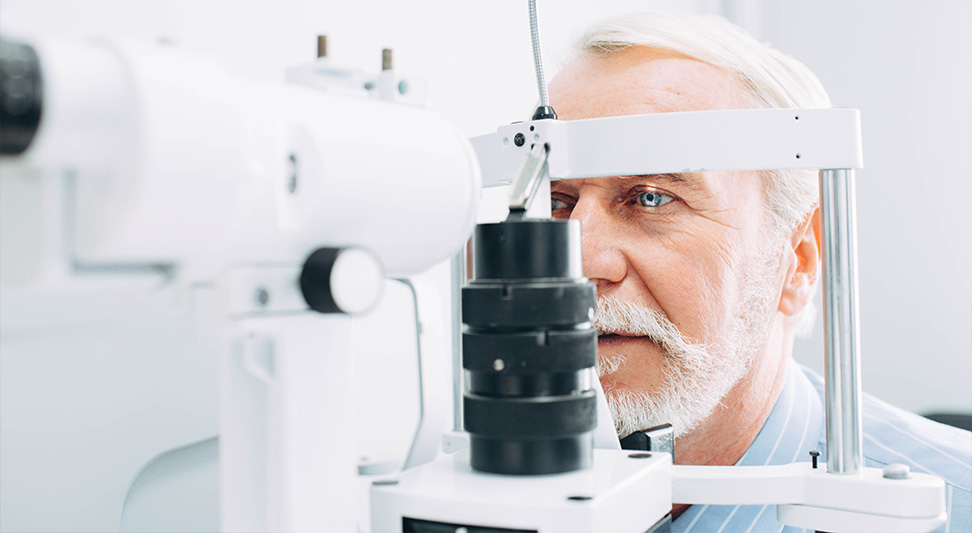As the summer nears its end, many of you are returning your attention from fun in the sun to taking care of business. That, of course, should include your health and well-being. This Healthy Aging Month, make sure you take responsibility for your health — and don’t neglect your eyesight. Here are a few things you can do to keep your eyes healthy and young.
What Is Healthy Aging Month?
September is Healthy Aging Month, an annual reminder with local events focusing on the importance of maintaining good health — physical, mental, social, emotional, and even financial — and the beneficial aspects of getting older. Created in 1992 by the president of the Educational Television Network and publisher of the multimedia platform Healthy Aging®, Carolyn Worthington, Healthy Aging Month is celebrating its 30th anniversary this year. September was formally designated National Healthy Aging Month by a unanimous Senate resolution just last year.
Campaigns tend to focus both on seniors and adults aged 45 and older. Since these stages of adulthood are when many folks begin to notice changes in their vision, the National Eye Health Education Program (NEHEP) is using this month to educate and promote good vision and eye health in seniors.
The Eye-Body Connection

It’s easy to understand how the health of the body as a whole can affect your eyes. For example, if you do not take care of yourself and develop diabetes, there are certain eye diseases and disorders that can result. What you may not be aware of is how the eyes can be the window to your body’s health.
Tumors, aneurysms, autoimmune disorders, neurological disorders (such as Parkinson’s disease and multiple sclerosis), and other diseases (such as thyroid, sickle cell, and liver diseases) can exhibit symptoms detectable in your eyes.
Hypertension—and the risk for a heart attack or stroke, even cardiovascular disease—may be seen in retinal blood vessels. Diabetes also affects retinal blood vessels. Cancer may manifest in abnormal growths within the eye. Loss of peripheral vision, abnormal eye movements, double vision, or other changes in your eyesight can suggest the presence of a brain tumor. Eyelids with basal cell carcinomas lesions can indicate skin cancer.
Age and Eye Health
Vision is an essential part of everyday life — but like the other parts of your body, your eyes are also affected by age. Many seniors discover that it is more difficult to see things up close, distinguish colors, and/or adjust when light levels change. They also become more prone to common age-related eye and vision problems, including:
- Cataracts – cloudy areas in the lens of the eye that cause blurry or hazy vision. Small cataracts may have minimal effect on your vision, but large ones noticeably affect it. If you are diagnosed with cataracts, your optometrist will monitor any changes over time and may eventually recommend cataract surgery. Thankfully, it is a common and safe treatment option.
- Glaucoma – excess fluid pressure inside the eye that can result in loss of vision and even blindness if it is left untreated. Unfortunately, many people do not experience pain or symptoms early on, so in order to detect glaucoma at the earliest instance, you should have annual eye exams with pupil dilation. Treatment options include prescription eye drops, regular surgery, or laser cataract surgery (like the CATALYS Precision Laser System).
- Presbyopia – gradual loss of the eye’s capacity to adjust focus to see small print or objects that are up close. Some people who suffer from presbyopia may find themselves getting headaches or their eyes getting “tired” when reading or focusing on objects close to the face. Reading glasses or bifocal/multifocal lenses can improve your eyesight. If you don’t want to wear glasses, however, you can opt for lens replacement surgery, which replaces the eye’s natural with an intraocular lens. It uses the same technology as cataract surgery to access and replace the natural lens. Lens replacement surgery can also treat nearsightedness, farsightedness, and astigmatism as an alternative to glasses and contact lenses.
- Dry Eye – tear gland dysfunction that can lead to your eyes stinging, burning, or feeling as though there is something in them. Using humidifiers, artificial tears, or dry eye ointments can help treat the condition. If the dry eye is severe, you may have to get prescription medicine, tear duct plugs, or require surgery.
- Diabetic Retinopathy – blood vessels in the retina leaking into the vitreous humor (in your eyeball), which may affect vision or cause blindness at later stages. Those suffering from diabetes are at risk of developing this condition, which often has no “warning signs” early on. Treating your diabetes and related issues and having yearly dilated eye exams are necessary to prevent or slow down diabetic retinopathy. Laser surgery in some cases can stabilize the condition.
- Age-related Macular Degeneration (or AMD) – disease causing damage to the eye’s macula (part of the retina) that can result in blurry central vision, which can then lead to difficulty doing common tasks such as reading or driving. Injections, a type of light therapy, and dietary supplements are treatment options for those with AMD.
Keeping Your Eyes Healthy As You Age

Maintaining good eye health is not as difficult as you might think. You should:
- Get comprehensive eye exams regularly. Vision tests only show you how good your eyesight is. An eye doctor must look into the eyeball through dilated pupils in order to properly examine the blood vessels and components of the eye.
- Wear sunglasses. Damage to your eyes from the sun’s UV rays can cause or exacerbate problems with your eye health and vision.
- Eat healthy foods and drink lots of water. Water prevents dehydration and keeps your eyes moist. Chicken/eggs provide proteins and vitamins that fight against age-related vision issues, as do green leafy vegetables and red bell peppers. The beta carotene in orange foods (like oranges, sweet potatoes, and carrots) also supports good eye health. Omega-3 fatty acids found in nuts, seeds, salmon, tuna, and trout can also stave off eye diseases.
- Quit bad habits. Smoking, overconsumption of sugar/refined foods, illicit drug use, and alcohol abuse are detrimental to your overall health and cause diseases and disorders that can affect the health of your eyes.
- Stay active. Just as bad habits are detrimental to body and eye health, good habits such as self-care, good nutrition, and maintaining an active lifestyle help counteract the effects (and potential body and eye health issues) associated with aging.
See an Optometrist Regularly

Take inspiration from Healthy Aging Month and take control of the health of your body and your eyes. If you haven’t had a comprehensive exam recently, schedule one with your optometrist today.
At nJoy Vision, we use advanced laser technology to treat two of the most common age-related vision problems—cataracts and presbyopia. If you’ve been diagnosed with either of these conditions or suspect you may have developed one, schedule a consultation at nJoy Vision to determine your eye health, the severity of your vision problem, and the right treatment option for you.
Lens Replacement
Lens replacement, also known as refractive lens exchange and custom lens replacement, can correct nearsightedness, farsightedness, and astigmatism by replacing the eye’s natural lens with an artificial intraocular lens (IOL). This procedure uses the same femtosecond laser technology as LASIK but does not change the shape or thickness of the cornea.
Patients who choose lens replacement to correct their vision problems will not experience vision regression or develop cataracts as they age. With many IOL options available, including multifocal IOLs, lens replacement is a popular option for patients over the age of 40 who have developed presbyopia and rely on reading glasses.
Laser Cataract Surgery
At nJoy Vision, we’re proud to be the first laser vision correction center in Oklahoma to perform laser cataract surgery using the CATALYS® Precision Laser System. The CATALYS® system uses 3D imaging and precision laser technology to soften and break up the cataract for quick and easy removal. It is a gentler, faster procedure that causes little or no discomfort.
Just like lens replacement surgery, laser cataract surgery replaces the eye’s natural lens with an artificial one. Laser cataract patients have the option of choosing from standard or premium IOLs that suit their lifestyle and vision correction needs.

